BENEDETTI


ALL-STAR GALA



Usher Hall, Edinburgh
Fri 26 May 2023 7.30pm

Glasgow Royal Concert Hall
Sat 27 May 7.30pm


























































































































































































































































































































































Usher Hall, Edinburgh
Fri 26 May 2023 7.30pm

Glasgow Royal Concert Hall
Sat 27 May 7.30pm




















































































































































































































































































































































Superstar soloists Nicola Benedetti, Sheku Kanneh-Mason and Benjamin Grosvenor each team up with the RSNO’s wonderful Youth Chorus under its inspiring Director, Patrick Barrett, before joining together with the full RSNO in Beethoven’s Concerto for Piano, Violin and Cello. Music Director
Thomas Søndergård closes the evening with Brahms’ powerful and dramatic First Symphony.
ERROLLYN WALLEN Inherit the World [4’]
RSNO Youth Chorus with Benjamin Grosvenor
RUSSELL HEPPLEWHITE The Death of Robin Hood [10’]
RSNO Youth Chorus with Sheku Kanneh-Mason
CAROLINE SHAW Its Motion Keeps [8’]
RSNO Youth Chorus with Nicola Benedetti
BEETHOVEN Concerto for Piano, Violin and Cello in C major Op56 Triple Concerto [33’]
BRAHMS Symphony No1 in C minor Op68 [45’]
Thomas Søndergård Conductor
Patrick Barrett RSNO Youth Chorus Conductor
Nicola Benedetti Violin
Sheku Kanneh-Mason Cello
Benjamin Grosvenor Piano
RSNO Youth Chorus
Royal Scottish National Orchestra
USHER HALL, EDINBURGH
Fri 26 May 2023 7.30pm
GLASGOW ROYAL CONCERT HALL
Sat 27 May 7.30pm
The Glasgow performance will be recorded for the RSNO Archive. Supported by the Iain and Pamela Sinclair Legacy.
If viewing these notes at the concert, please do so considerately and not during performances. Please silence all mobile telephones and alerts, and refrain from taking photographs, without flash, until the end of each piece.
SCOTCH SNAPS SCOTCH SNAPS SCOTCH SNAPS SCOTCH SNAPS SCOTCH SNAPS SCOTCH SNAPS
DND THU 1 JUN
EDN FRI 2 JUN
GLW SAT 3 JUN
Mozart Symphony No40 K550
Jörg Widmann Armonica
Mozart Adagio for Glass Harmonica in C major K356
Mozart Symphony No41 Jupiter K551
Jörg Widmann Conductor
Christa Schönfeldinger Glass Harmonica
Year competition and have been passionate advocates for music education, inspiring the next generation. We are fortunate indeed to have worked in recent seasons with Sheku, Benjamin and Nicky, and it is so special that our young singers can share the stage with them tonight.
This concert is also the conclusion of our Brahms cycle under Music Director Thomas Søndergård. It’s been fantastic to see him work with the Orchestra on all four symphonies throughout the Season.
This evening’s concert not only shines a light on three superstars of British classical music but also on the RSNO’s wonderful Youth Chorus under their Director Patrick Barrett. Performing contemporary works by Errollyn Wallen, Russell Hepplewhite and Caroline Shaw is the culmination of a lot of hard work by the Youth Chorus. We are extremely lucky to have such a dedicated group performing with the Orchestra on a regular basis.
Errolyn Wallen’s Inherit the World premiered during COP26, and I’m sure you’ll agree it’s extremely moving to hear young voices deliver such a powerful message. I’m looking forward to the world premiere of Errollyn’s Violin Concerto next Season – another RSNO co-commission.
Beethoven’s Triple Concerto performed live is something to treasure, and to have three of the UK’s best-selling and most admired stars on stage together is bound to be an exciting experience. All three soloists had their careers launched by the BBC Young Musician of the
This is our first Season concert back in Scotland following a successful European tour with Thomas. It was an incredibly special moment for me to watch the Orchestra perform at the Musikverein in Vienna, and I was thrilled to be joined by members of the RSNO Circle who travelled from Glasgow to soak up the very special atmosphere at this famed venue.
This evening, as they give this gala concert featuring a work by Beethoven that was both completed and premiered in Vienna, I hope you feel that the Orchestra has brought some of that Musikverein magic back to Scotland!
Alistair Mackie CHIEF EXECUTIVE


































































FIRST PERFORMANCE
RSNO Youth Chorus, COP26, Glasgow, 2 November 2021
DURATION 4 minutes
I was delighted to be asked to compose a song for the RSNO Youth Chorus to perform at COP26, the United Nations Climate Change Conference held in Glasgow in 2021.
My attendance at an early rehearsal was from my lighthouse home in the far north Highlands via Zoom, but I could nevertheless hear and see the passion and commitment of the choir to the words and music of Inherit the World
I wanted to compose a song with music and words which would encapsulate the viewpoint of young people in the face of the climate change predicament in which we find ourselves. There are so many older people who believe there is nothing to be worried about; these people disregard the plight of the young who will inherit this precious earth.
The rapid figuration in the piano refrain heard right at the beginning of the song draws on my love of the blues and is also meant to convey the image of a lone bird flying high in the sky.
© Errollyn WallenErrollyn Wallen
We are still young but We will inherit The oldest Earth that’s ever been.
We are still young but We will inherit The oldest Earth that’s ever been, that never will survive.
Why don’t you listen to the children in your midst,
To their cry, to their plea, to their humble wise?
Why don’t you listen to the children everywhere
As they try, as they sigh, as they wonder why the wilderness is dying, The frozen wastes grow warm?
How will we live?
How long can children live with this insanity of governments?
We just want to live. Like the fishes, like the birds and trees.
Don’t kill our world.
We will inherit this Earth. We will inherit the Earth. We will inherit this Earth. We will inherit your Earth.
© Errollyn WallenBBC Radio 3 featured Errollyn’s music across the first week of 2022 on its flagship programme Composer of the Week, and she has made several radio documentaries, including Classical Commonwealth, which explored the impact of colonialism on music in the Commonwealth and was nominated for the Prix Europa. Her carol Peace on Earth was part of the Nine Lessons and Carols broadcast from King’s College, Cambridge on Christmas Eve and Christmas Day 2022.
Errollyn founded her own group, Ensemble X, whose motto is ‘We don’t break down barriers in music … we don’t see any’. Their orchestral album Photography on the NMC label was voted a Top 10 Classical Album by America’s National Public Radio.
Errollyn Wallen is a multi-award-winning Belize-born British composer and performer. Her prolific output includes 22 operas and a large catalogue of orchestral, chamber and vocal works which are performed and broadcast throughout the world. She was the first Black woman to have a work featured in the BBC Proms and the first woman to receive an Ivor Novello Award for Classical Music for her body of work.
Errollyn composed for the opening ceremony of the Paralympic Games 2012 and for the Queen’s Golden and Diamond jubilees, as well as a re-imagining of Jerusalem for the 2020 Last Night of the Proms. Inherit the World, her special commission for COP26 in Glasgow in 2021, was premiered by the RSNO Youth Chorus. She is one of the 20 most-performed living composers of classical music in the world.
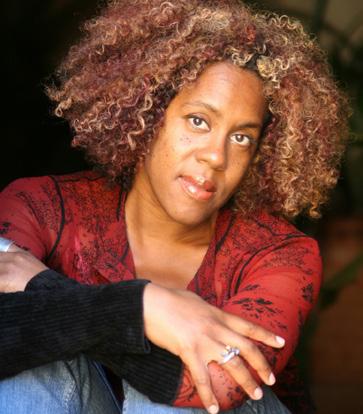
Russell Hepplewhite (Born 1982)
Trinity Boys Choir, St Mary-at-the-Hill Church, London, March 2015
DURATION 10 minutes
Aren’t all children (and many adults) fascinated by Robin Hood? The myth, the folklore and of course the moral dilemma he poses as to whether it is ever right to steal from the rich to give to the poor. For all these reasons I had always wanted to compose a piece about him, and so when Trinity Boys Choir commissioned a new work from me in 2013, I found the ideal text by Eugene Field. The language of the poem is wonderfully accessible to young singers, and although it is a sad text, the words are actually as much about friendship and the beauty and power of the natural world as they are about the final moments of Robin Hood.
For my setting the choir divides into three vocal lines and is accompanied by a solo cello. Young voices are the purest of all, and in this work I wanted to showcase their clarity and natural transparency. The singers narrate the scene, while the cello both supports and adds further commentary between certain lines and verses. Some of the melodic writing is angular and jagged, to reflect the tension and the heightened emotional state being described. I had even imagined the sound of the cello as being like a ghostly echo of the voice of Robin Hood himself. For some of the more dramatic images that drive the poem forward – the bow and arrow, for example – the choir combine and punch out the words in rhythmic unison. In contrast, they weave around each other in polyphony when singing about the natural world – the babbling brook, the birds singing and the wild flowers of the forest. Towards the end of the poem, Robin Hood is placed in a marble vault in the forest and the choir
eventually fall silent. A solo singer concludes the tale, and then with just one final plucked note from the cello the piece disappears into silence and the listener is left to contemplate all that has just been told.
© Russell HepplewhiteTHE DEATH OF ROBIN HOOD
Russell Hepplewhite
Text: Poem by Eugene Field (1850-1895)
‘Give me my bow,’ said Robin Hood, ‘An arrow give to me; And where ’t is shot mark thou that spot, For there my grave shall be.’
Then Little John did make no sign, And not a word he spake; But he smiled, altho’ with mickle woe. His heart was like to break. He raised his master in his arms, And set him on his knee; And Robin’s eyes beheld the skies, The shaws, the greenwood tree. The brook was babbling as of old, The birds sang full and clear, And the wild flowers gay like a carpet lay In the path of the timid deer.
‘O Little John,’ said Robin Hood, ‘Meseemeth now to be
Standing with you so staunch and true
Under the greenwood tree.
And all around I hear the sound
Of Sherwood long ago,
And my merry men come back again, You know, sweet friend, you know!
Now mark this arrow; mark where it falls, When I am dead dig deep, Bury me there in the greenwood where I would forever sleep.’
He twanged his bow. Upon its course The clothyard arrow sped,
And when it fell in yonder dell, Brave Robin Hood was dead. The sheriff sleeps in a marble vault, The king in a shroud of gold; And upon the air with a chanted pray’r Mingles the mock of mould. But the deer draw to the shady pool, The birds sing blithe and free, And the wild flow’rs bloom o’er a hidden tomb Under the greenwood tree.
have been widely performed, and have won him critical acclaim. The most successful of these, Laika The Spacedog, has been performed across Europe, including in new productions by the Nouvel Opéra Fribourg/Neue Oper Freiburg in Switzerland and the Forum Neue Kunst in Oldenburg, Germany. Other operas include The Price and Ever Young, both for W11 Opera; The Casket Girl for Jubilee Opera; and Moonfleet The Musical for Salisbury Playhouse. Most recently the Opéra Orchestre National Montpellier gave the world premiere of Climat.
Russell’s many choral works are published by Banks Music Publications, Oxford University Press and Stainer & Bell. With acclaimed author Michael Rosen, he composed the 2020 set of Friday Afternoons songs commissioned by Britten-Pears Aldeburgh.
Russell Hepplewhite studied at Chetham’s in Manchester, and the Royal College of Music in London as a scholar. He is recognised as a leading music-theatre composer.
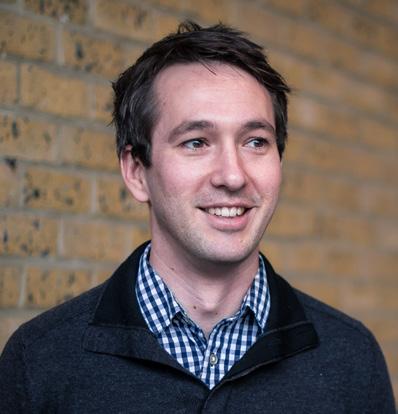
Russell’s groundbreaking operas commissioned by English Touring Opera for young audiences
He is currently working on a new opera commissioned by the Staatstheater of Oldenburg, due to be premiered in Germany next February.
Brooklyn Youth Chorus, Carnegie Hall, New York, November 2013
DURATION 8 minutes
Benjamin Britten’s attraction to his native English folk songs and hymns comes through in so much of his music, from his choral and opera works to his chamber music and vocal arrangements. Taking a step in that direction, and then sideways and back and around, Its Motion Keeps is based on the words from the first verse of the American shape-note hymn Kingwood, found in The Southern Harmony (1835) and other early 19th-century hymn books. (Very likely, it is a text that immigrated from England.) It begins with a palindromic violin pizzicato line that gestures to the continuo lines of Henry Purcell, to whom Britten wrote several homages. The choir echoes this contour at first and soon splits into swift canonic figures like those found in This Little Babe from Britten’s Ceremony of Carols, eventually expanding into the ‘swirling spheres’ above string arpeggiations in a texture that recalls the vivace movement of his second string quartet (one of his homages to Purcell). The ecstatic double choir section evokes the antiphonal sound of the early English choral tradition, with harmonies overlapping overhead in the reverberant stone cathedrals, creating brief dissonances while one sound decays as the next begins. The last line, ‘Time, like the tide, its motion keeps; Still I must launch through endless deeps’, is just one of those perfect, beautiful lyrics – resilient and bittersweet.
© Caroline ShawCaroline Shaw
Text: The Southern Harmony No98 (1835)
my days, my weeks, my months, my years my days, your weeks, their months, our years oh fly rapid as the whirling spheres my days, your weeks, their months, our years time, like the tide, its motion keeps still I must launch through endless deeps time, like the tide, my days, your years
Hour), the score for Helen Simoneau’s dance work Delicate Power, tours of Graveyards & Gardens (co-created immersive theatrical work with Vanessa Goodman) and tours with So Percussion featuring songs from Let The Soil Play Its Simple Part (Nonesuch).
Caroline Shaw is a musician who moves among roles, genres and mediums, trying to imagine a world of sound that has never been heard before but has always existed. She works often in collaboration with others, as producer, composer, violinist and vocalist.
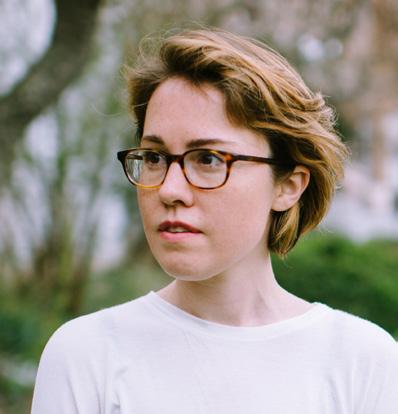
Caroline is the recipient of the 2013 Pulitzer Prize in Music, several GRAMMY awards, an honorary doctorate from Yale and a Thomas J Watson Fellowship. Her recent projects include the score to Fleishman Is in Trouble (FX/ Hulu), vocal work with Rosalía (MOTOMAMI), the score to Josephine Decker’s The Sky Is Everywhere (A24/Apple), music for the National Theatre’s production of The Crucible (dir. Lyndsey Turner), Justin Peck’s Partita with New York City Ballet, a new stage work LIFE (Gandini Juggling/Merce Cunningham Trust), the premiere of Microfictions Vol. 3 for the New York Philharmonic and Roomful of Teeth, a live orchestral score for Wu Tsang’s silent film Moby Dick co-composed with Andrew Yee, two albums on Nonesuch (Evergreen and The Blue
Caroline has written over 100 works in the last decade, for Anne Sofie von Otter, Davóne Tines, Yo-Yo Ma, Renée Fleming, Dawn Upshaw, the Los Angeles Philharmonic, Philharmonia Baroque, Seattle Symphony, Cincinnati Symphony, Aizuri Quartet, The Crossing, Dover Quartet, Calidore String Quartet, Brooklyn Rider, Miró Quartet, I Giardini, Ars Nova Copenhagen, Ariadne Greif, Brooklyn Youth Chorus, Britt Festival and Vail Dance Festival. She has contributed production to albums by Rosalía, Woodkid and Nas. Her work as vocalist or composer has appeared in several films, TV series and podcasts, including The Humans, Bombshell, Yellowjackets, Maid, Dark, Beyonce’s Homecoming, Tár, Dolly Parton’s America and More Perfect
Fashionable yet entirely unique, for mixed technical ability yet tremendously challenging, balancing severity with fun, and weighty grandeur with chamber-weight intimacy, Beethoven’s so-called Triple Concerto may not get quite as many concert outings as his other concertos, but when it does get dusted off, it packs a punch.
Vienna, May 1808
DURATION 33 minutes
Completed in 1804 in Vienna, this is a work which stands as the first and last instance of a major composer writing a concerto whose ‘soloist’ is a piano trio, a chamber genre so popular during Beethoven’s early career that in 1795 he had presented three of them as his Opus 1 (i.e. his first published music). Equally, a genre that had underlined the young Beethoven’s own status as a rising virtuoso concert pianist. This was a point he had then cemented over the nine ensuing years, because while he hadn’t composed any further piano trios, there been three piano concertos, multiple piano sonatas, and piano-led violin and cello sonatas, all with their structural innovations and virtuosic brilliance, and always with him the intended performer.
Still, this particular concerto’s piano part places only moderate technical demands on its player, because rather than writing it for himself, Beethoven was dedicating it to his recently acquired 16-year-old pupil, Archduke Rudolf, son of the late Emperor Leopold II, and someone who would become an important friend and patron over the years. As for the Archduke’s intended solo sparring partners, these were cellist Nikolaus Kraft – for whom Haydn had written his virtuosic Cello Concerto No2 – and violinist Carl August Seidler, i.e. professionals whose parts Beethoven could comfortably pepper with fireworks, which for Kraft included lots of upper-register work, to ensure his cello came out strongly enough
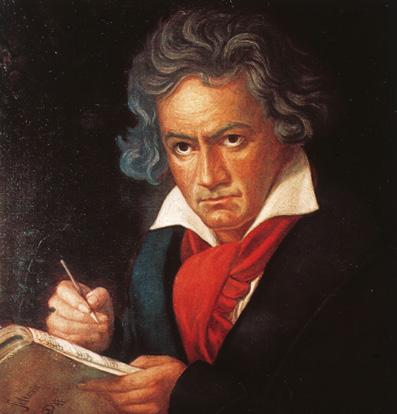
in the overall balance. However, perhaps the work’s greatest soloist’s challenge is the one shared evenly between the three of them, namely to operate as a hand-in-glove chamber unit while simultaneously remaining in close communion with the supporting orchestra.
Unusually for a big-boned concerto, the first movement opens on a tiptoe, the orchestral cellos and basses murmuring an ascending figure whose rhythm will inform much of the movement’s remaining material. Gradually the remainder of the orchestra enters, the goodnatured drama and tension steadily increases, and a perky march-like feel establishes itself. It’s the cellist who gets first bite of the solo cherry, proudly proclaiming the theme in its highest registers to deferentially chugging orchestral strings, swiftly joined by the violin, and soon afterwards the piano. Onwards, and the three of them weave and dance around each other and the orchestra, embellishing and varying the thematic material, each of them getting turns in the spotlight.
Next comes the expressive central Largo. Cast in warm A flat major, it opens with muted orchestral strings, onto which the cellist almost immediately lays its own high-register song. Then, while the piano is next to enter, it’s not with the melody but instead with elaborate accompanying figures, supporting first a woodwind choir, and then the close duetting between violin and cello.
Relatively soon, though, urgent repeated notes herald the music being tipped without a break into the concluding Rondo alla Polacca, whose use of the triple-time Polish dance form the Polacca (or Polonaise) would no doubt have appealed to the Archduke, it being very much in vogue within early 19th-century aristocratic circles. This one is delicious too, managing
to be both elegant and flashy, climaxing on a sparkling home straight featuring a duple-time Allegro and a mini-cadenza (just when we’d given up waiting for one) before its final buildup to triumphant closing chords.
© Charlotte GardnerIn the summer of 1862, pianist and composer Clara Schumann received a surprise parcel. ‘What do you think Johannes has just sent me?’ she wrote to the violinist Joseph Joachim. ‘It’s the first movement of a symphony. It begins somewhat severely, but I have got used to it. The movement is full of beauties; the themes are treated with a mastery that grows more and more individual.’
Karlsruhe, 4 November 1876
DURATION 45 minutes
1. Un poco sostenuto – Allegro
2. Andante sostenuto
3. Un poco allegretto e grazioso
4. Adagio – Allegro non troppo, ma con brio
That ‘mastery’ was the product of long reflection and much harsh self-criticism. Ideas for the First Symphony had apparently begun to take shape in Brahms’ mind around 1855, when he was 22. And another 14 years were to pass before Clara was able to see the completed four-movement symphony. Why did it take Brahms so long? Well, for one thing he’d set himself fearfully high standards. ‘I shall never write a symphony,’ Brahms told the conductor Hermann Levi in 1870, gesturing towards a scowling bust of Beethoven in the corner of his study. ‘You’ve no idea what it’s like with such a giant marching behind you.’ But friends carried on a campaign of sustained encouragement, and by 1876 the score was at last ready. The First Symphony was performed all over Europe, with increasing success. Soon critics were calling it ‘Beethoven’s Tenth’ – a ringing compliment, but for the hypersensitive Brahms possibly double-edged. Had he emerged from Beethoven’s shadow or not? When someone rashly pointed out the ‘extraordinary’ similarity between the main theme of Brahms’ finale and the Ode to Joy theme in Beethoven’s Ninth Symphony, Brahms retorted, ‘And still more extraordinary that any fool can hear it!’
Certainly, the first movement is Beethovenlike in dark passions and grim, often obsessive determination. But the slow introduction (apparently added quite late in the composition
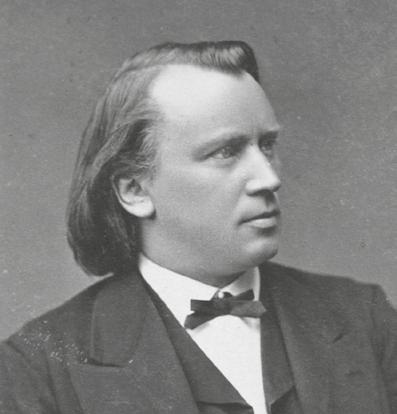
process) pays tribute to another of Brahms’ gods, Bach: the low, throbbing bass notes recall the opening chorus of the St Matthew Passion – if taken at a much more reverential speed than we’re used to today. Tension builds magnificently, to be released as impassioned forward motion in the Allegro. As Clara Schumann noted in 1862, the development of the leading motifs is remarkably well sustained, and the return of the first Allegro theme is thrillingly engineered. So far, the spirit could be described as Beethovenian. But the ending is pure Brahms: the tempo drops and the pulsating bass notes of the introduction return, now hushed, leading to a conclusion that is neither clamorous triumph nor black tragedy, rather an ambiguous major key calm.
After this, heroic struggle is put on one side for the next two movements. The Andante sostenuto has its troubled moments, but now melody carries the argument, finally flowering in a ravishing violin solo. The Un poco allegretto e grazioso is relaxed and beguiling – a long way from the elemental dance energy of the typical Beethovenian scherzo.
One effect of all this is to heighten our expectations of the finale – it has to be an effective counterweight to the first movement, as well as finally resolving its tragic tensions. A sudden darkening is followed by music which seems to be groping for something definitive, then comes a moment of vision: trombones, silent up till now, warmly support a noble horn theme, sounding through a veil of shimmering strings. Writing to Clara Schumann in 1868, Brahms claimed he’d heard it played by a shepherd on an Alphorn (unlikely, but it’s a lovely image), adding the words, ‘High on the mountain, deep in the valley, I send you a thousand greetings.’ A confident, forwardstriding tune begins the Allegro non troppo, ma
con brio – Brahms’ response to Beethoven’s Ode to Joy theme. Something of the first movement’s sense of struggle is recaptured, but this time the outcome is unambiguous, as a warmly affirmative brass chorale leads to a final dance of victory.
© Stephen Johnson2013 Classical BRIT Awards, Nicola records exclusively for Decca (Universal Music). Her latest recordings of Vivaldi Concertos and Elgar’s Violin Concerto entered at No1 in the UK’s Official Classical Album Chart. Other recent recordings include her GRAMMY Awardwinning album written especially for her by jazz musician Wynton Marsalis: Violin Concerto in D and Fiddle Dance Suite for Solo Violin. In 2021, BBC Music Magazine named her Personality of the Year for her online support of many young musicians during the pandemic.
Nicola Benedetti is one of the most soughtafter violinists of her generation. Her ability to captivate audiences and her wide appeal as an advocate for classical music have made her one of the most influential artists of today.
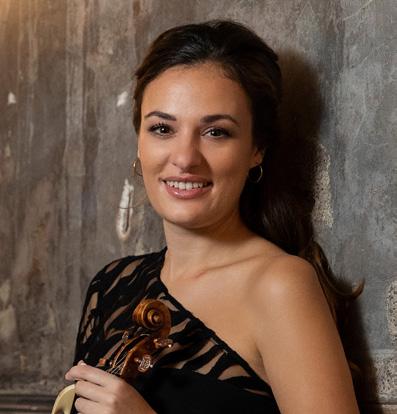
Nicola began her 2022/23 season with a performance of the Marsalis Violin Concerto with the RSNO at the BBC Proms and Mendelssohn’s Violin Concerto with Kazuki Yamada and the City of Birmingham Symphony Orchestra. Further engagements included the world premiere of Sir James MacMillan’s Violin Concerto No2 with the Scottish Chamber Orchestra, a tour to Japan with the BBC Symphony Orchestra and performances with the Boston Symphony Orchestra, Hallé and Deutsches Symphonie-Orchester Berlin. Next, Nicola joins the Netherlands Radio Philharmonic, Gothenburg Symphony and Orchestre de Paris, among many others.
Winner of the GRAMMY Award for Best Classical Instrumental Solo in 2020, as well as Best Female Artist at the 2012 and
Nicola was appointed a CBE in 2019, awarded the Queen’s Medal for Music (2017) and an MBE in 2013. In addition, she holds the positions of Vice President (National Children’s Orchestras), Big Sister (Sistema Scotland) and Patron (National Youth Orchestras of Scotland’s Junior Orchestra, Music in Secondary Schools Trust and Junior Conservatoire at the Royal Conservatoire of Scotland).
In 2019, Nicola formalised her commitment to music in education when she established The Benedetti Foundation. Since its launch, the Foundation has worked with over 29,000 participants, aged 2-92 from 103 countries, through its transformative in-person workshops and online sessions for young people, students, teachers and adults.
In March 2022, Nicola became the Director Designate of the Edinburgh International Festival, becoming Festival Director on 1 October 2022. In taking the role, she is both the first Scottish and the first female Festival Director since the Festival began in 1947.
educational workshops. He also performs with orchestras such as the RSNO, London Mozart Players, Orchestre de Chambre de Paris, Royal Northern Sinfonia, Camerata Salzburg and the Hallé. In the Americas, Sheku features as soloist with the Philadelphia Orchestra, Los Angeles Chamber Orchestra, Toronto Symphony, Boston Symphony, São Paulo Symphony and on tour with the City of Birmingham Symphony Orchestra. He also performs his first solo cello recital programme in venues such as Wigmore Hall London, National Concert Hall Dublin, Palau de la Música Catalana Barcelona, Auditorio Nacional de Música Madrid, Musée du Louvre Paris and De Doelen Rotterdam, and returns to the Dortmund Konzerthaus as one of their Junge Wilde artists.
Sheku Kanneh-Mason is in great demand from major orchestras and concert halls worldwide. He became a household name in 2018 after performing at the wedding of the Duke and Duchess of Sussex at Windsor Castle, his performance having been watched by nearly two billion people globally. Sheku initially garnered renown as the winner of the 2016 BBC Young Musician competition, and subsequently became a Decca Classics recording artist. His latest album, Song, showcases his lyrical playing, with a wide selection of arrangements and collaborations. Sheku’s 2020 album Elgar reached No8 in the main UK Official Album Chart, making him the first-ever cellist to reach the UK Top 10. Sheet music collections of his performance repertoire along with his own arrangements and compositions are published by Faber.

In the 22/23 season, Sheku appears as Artist in Residence with the Philharmonia Orchestra, performing three concertos across the year in addition to chamber music and giving
Since his debut in 2017, Sheku has performed every summer at the BBC Proms, including in 2020 when he gave a recital performance with his sister, Isata, to an empty auditorium due to the Covid-19 pandemic. He was scheduled to appear as guest soloist at the cancelled 2022 Last Night of the Proms with the BBC Symphony Orchestra.
A graduate of London’s Royal Academy of Music, where he studied with Hannah Roberts, Sheku was appointed in May 2022 as the Academy’s first Menuhin Visiting Professor of Performance Mentoring. He is an ambassador for the Juvenile Diabetes Research Foundation, Future Talent and Music Masters. He was appointed a MBE in the 2020 New Year Honours List. He plays a Matteo Goffriller cello from 1700, which is on indefinite loan.
In recital, Benjamin makes his debut in the Lucerne Piano Festival, Chicago Masters series, in Mainz as part of the SWR2 Internationale Pianisten series and in Oldenburg. He also returns to the Théâtre des Champs-Elysées Paris, Wigmore Hall London, Sage Gateshead, Kennedy Center Washington, DC, 92nd Street Y New York and Minneapolis Chopin Society, and embarks on a tour of Latin America, including returns to São Paulo and Montevideo. A keen chamber musician, regular collaborators include Hyeyoon Park, Timothy Ridout, Kian Soltani and the Doric String Quartet.
British pianist Benjamin Grosvenor is internationally recognised for his sonorous lyricism and understated brilliance at the keyboard. His virtuosic interpretations are underpinned by a unique balance of technical mastery and intense musicality. Performing over 70 concerts across five continents this season, recent and forthcoming concerto engagements include the RSNO, KBS Symphony, Chicago Symphony, London Philharmonic, Orchestra of St Luke’s at Carnegie Hall New York, Cleveland Orchestra, Prague Radio, Bern, San Diego and City of Birmingham Symphony orchestras, Hallé, Auckland Philharmonia and Orchestre de Lyon, and at the BBC Proms with the Sinfonia of London. He is Artist in Focus at The Sage Gateshead and performs three projects across the season with the Philharmonia Orchestra, including both Chopin Piano Concertos and Beethoven’s Triple Concerto.
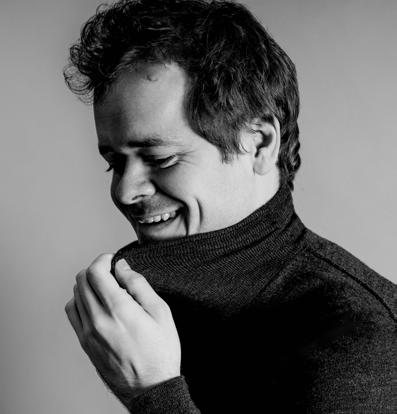
An exclusive Decca Classics artist since 2011, Benjamin was the first British pianist in almost 60 years to sign with the label, with his most recent releases including the Chopin concertos with Elim Chan and the RSNO, which won a 2020 Gramophone Classical Music Award. Benjamin has received Gramophone’s Young Artist of the Year, a Classical Brit Critics’ Award, a UK Critics’ Circle Award for Exceptional Young Talent and a Diapason d’Or Jeune Talent Award. In 2016 he became the inaugural recipient of the Ackman Classical Piano Prize with the New York Philharmonic.
Following studies at the Royal Academy of Music, Benjamin Grosvenor graduated in 2012 with the Queen’s Commendation for Excellence and in 2016 was awarded an RAM Fellowship. He is an Ambassador of Music Masters, a charity dedicated to making music education accessible to all children regardless of their background, championing diversity and inclusion.
In November 2021 Thomas conducted the RSNO in the world premiere of Detlev Glanert’s Violin Concerto No2 To the Immortal Beloved (with Midori) during the 2021 United Nations Climate Change Conference (COP26) held in Glasgow. Recent highlights with the RSNO have included tours to China and the US, the premiere of Wynton Marsalis’ Violin Concerto with Nicola Benedetti (also at the 2022 BBC Proms) and much-praised performances at the Edinburgh Festival.
Danish conductor Thomas Søndergård has been Music Director of the RSNO since the 2018:19 Season, following six seasons as Principal Guest Conductor. From 2012 to 2018 he was Principal Conductor of the BBC National Orchestra of Wales (BBC NOW), after stepping down as Principal Conductor and Musical Advisor of the Norwegian Radio Orchestra. He becomes Music Director of the Minnesota Orchestra in September 2023.

Thomas has appeared with many notable orchestras in leading European centres, such as Berlin (including the Berliner Philharmoniker, Rundfunk-Sinfonieorchester Berlin, Mahler Chamber Orchestra), Leipzig (Gewandhausorchester), Paris (Orchestre National de France), London (London Philharmonic, BBC Symphony, London Symphony and Philharmonia), Amsterdam and Rotterdam (Royal Concertgebouw, Netherlands Philharmonic, Rotterdam Philharmonic), and throughout Scandinavia. North American appearances have included the orchestras of Chicago, Toronto, Atlanta, Vancouver, Houston and Seattle.
Following his acclaimed debut for Royal Danish Opera with Poul Ruders’ Kafka’s Trial, Thomas has returned regularly to conduct repertoire ranging from contemporary to Le nozze di Figaro, Il barbiere di Siviglia, La bohème, The Cunning Little Vixen and Il viaggio a Reims, and has made short concert tours with the Royal Danish Orchestra. He has also enjoyed successful collaborations with Norwegian Opera and Royal Swedish Opera. His Stockholm productions of Tosca and Turandot (both with Nina Stemme) led to his Bayerische Staatsoper debut, conducting main season and Opera Festival performances of Turandot with Stemme. He made his Deutsche Oper Berlin debut with the world premiere of Andrea Lorenzo Scartazzini’s Edward II and has since returned for Berlioz’s Romeo and Juliet
Thomas has recorded with violinist Vilde Frang and the WDR Köln and cellist Johannes Moser and the Rundfunk-Sinfonieorchester
Berlin, and the music of Poul Ruders with the Aarhus Symphony, Norwegian Radio Orchestra and Royal Danish Opera. For Linn Records he has recorded Sibelius symphonies and tone poems with the BBC NOW, and Prokofiev symphonies 1 and 5 and Richard Strauss’ Ein Heldenleben with the RSNO.
Formed in 1891 as the Scottish Orchestra, the company became the Scottish National Orchestra in 1950, and was awarded Royal Patronage in 1977. The Orchestra’s artistic team is led by Danish conductor Thomas Søndergård, who was appointed RSNO Music Director in October 2018, having previously held the position of Principal Guest Conductor. Hong Kong-born conductor Elim Chan succeeds Søndergård as Principal Guest Conductor.

The RSNO performs across Scotland, including concerts in Glasgow, Edinburgh, Dundee, Aberdeen, Perth and Inverness. The Orchestra appears regularly at the Edinburgh International Festival and the BBC Proms, and has made recent tours to the USA, China and Europe.
The Orchestra is joined for choral performances by the RSNO Chorus, directed by Stephen Doughty. The RSNO Chorus evolved from a choir formed in 1843 to sing the first full performance of Handel’s Messiah in Scotland. Today, the RSNO Chorus is one of the most distinguished large symphonic choruses in Britain. The Chorus has performed nearly every work in the standard choral repertoire, along with contemporary works by composers including John Adams, Howard Shore and Sir James MacMillan.
The RSNO has a worldwide reputation for the quality of its recordings, receiving a 2020 Gramophone Classical Music Award for Chopin’s Piano Concertos (soloist: Benjamin Grosvenor), conducted by Elim Chan; two Diapason d’Or awards for Symphonic Music (Denève/Roussel 2007; Denève/Debussy 2012) and eight GRAMMY Awards nominations. Over 200 releases are available, including Thomas Søndergård conducting Strauss (Ein Heldenleben, Der Rosenkavalier Suite) and Prokofiev (Symphonies Nos1 and 5), the complete symphonies of Sibelius (Gibson), Prokofiev (Järvi), Bruckner (Tintner) and Roussel (Denève), as well as further discs championing the music of William Grant Still (Eisenberg), Xiaogang Ye (Serebrier) and Thomas Wilson (Macdonald).
The RSNO’s pioneering learning and engagement programme, Music for Life, aims to engage the people of Scotland with music across key stages of life: Early Years, Nurseries and Schools, Teenagers and Students, Families, Accessing Lives, Working Lives and Retired and Later Life. The team is committed to placing the Orchestra at the centre of Scottish communities via workshops and annual residencies.
FIRST VIOLIN
Maya Iwabuchi
LEADER
Lena Zeliszewska
ASSOCIATE LEADER
Tamás Fejes
ASSISTANT LEADER
Patrick Curlett
Evgeny Makhtin
Caroline Parry
Elizabeth Bamping
Lorna Rough
Alan Manson
Liam Lynch
Michelle Dierx
Gillian Risi
Alison McIntyre
Catherine James
SECOND VIOLIN
Jack Greed
GUEST PRINCIPAL
Marion Wilson
Nigel Mason
Paul Medd
Harriet Hunter
Anne Bünemann
Sophie Lang
Helena Rose
Kirstin Drew
Seona Glen
Eddy Betancourt
Joe Hodson
VIOLA
Tom Dunn
PRINCIPAL
Felix Tanner
Susan Buchan
Katherine Wren
Nicola McWhirter
Lisa Rourke
Maria Trittinger
David McCreadie
Elaine Koene
Beth Woodford
CELLO
Betsy Taylor
ASSOCIATE PRINCIPAL
Kennedy Leitch
Rachael Lee
Sarah Digger
Gunda Baranuaskaitė
Susan Dance
Miranda Phythian-Adams
Findlay Spence
DOUBLE BASS
Anthony Alcock
GUEST PRINCIPAL
Michael Rae
Moray Jones
Alexandre dos Santos
Aaron Barrera-Reyes
Evangelos Saklaras
FLUTE
Katherine Bryan PRINCIPAL
Oliver Roberts
OBOE
Adrian Wilson PRINCIPAL
Peter Dykes
CLARINET
Timothy Orpen
PRINCIPAL
William Knight
BASSOON
David Hubbard
PRINCIPAL
Grant McKay
Paolo Dutto
PRINCIPAL CONTRABASSOON
HORN
Olivia Gandee
GUEST PRINCIPAL
Alison Murray
Andrew McLean
Martin Murphy
Andrew Saunders
TRUMPET
Christopher Hart
PRINCIPAL
Katie Smith
TROMBONE
Dávur Juul Magnussen
PRINCIPAL
Lance Green
Alastair Sinclair
PRINCIPAL BASS TROMBONE
TIMPANI
Paul Philbert
PRINCIPAL
The RSNO Youth Chorus is one of the leading children and youth choirs in the UK. Formed in 1978 by Jean Kidd, the Youth Chorus is currently led by director Patrick Barrett and boasts over 400 members aged 7 to 18. It has built up a considerable reputation singing under some of the world’s most distinguished conductors and appearing on radio and television.
RSNO Youth Chorus members sing regularly with Scotland’s National Orchestra in major
concert halls and festivals throughout the country and most recently performed at COP26. The Youth Chorus has also sung at BBC concerts and regularly appears at the Edinburgh International Festival.

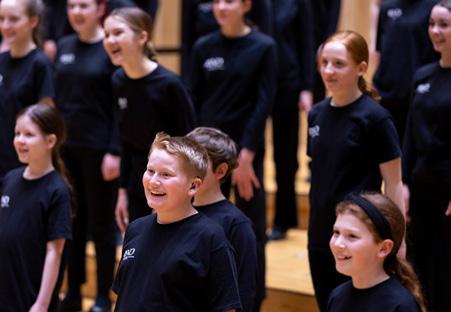
The RSNO Youth Chorus is kindly supported by Dunclay Charitable Trust, Meikle Foundation, W A Cargill Fund and Walton Foundation
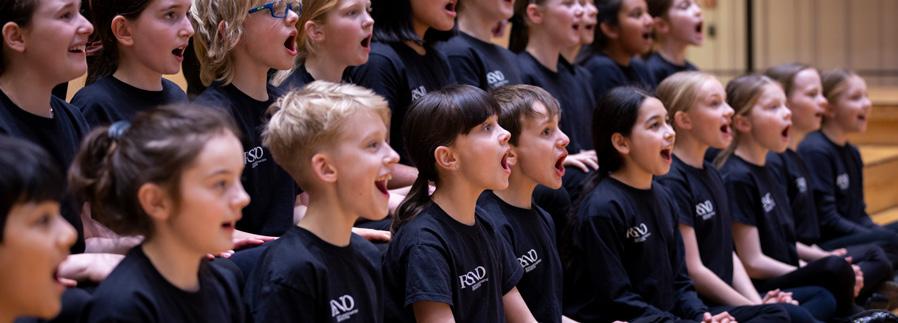
Aaryanna Akram
Aicha Thiam
Alannah Clancy
Alma Correal-Jarrett
Amelia Mashwani
Amelie Caldwell
Ana Ryburn-Thomson
Andrew Irvine
Anna Phillips
Anna Ross
Aoife Canning
Bea Courtial
Charlotte Lewsey
Charlotte Savage
Daniyal Sŏlić-Ansari
Diana Lizer
Eilidh Hughes
Eleanor Carrie
Ellen Phillips
Ellie Digger
Emily Ogilvie
Emma Little
Emma McKinstry
Erin Blyth
Eve Whitton *
RSNO YOUTH CHORUS
RSNO YOUTH CHORUS DIRECTOR
Patrick Barrett
ASSOCTIATE DIRECTORS
Anne Murphy
Alison McNeill Youth Chorus 1
HEAD OF MUSICIANSHIP TRAINING
Morag Kean
MUSICIANSHIP STAFF
Heather Drysdale
Claire McCue
Moilidh NicGriogair
Laura Smith
Aimee Toshney
Frikki Walker
Evelyn Kelly
Evonna Leung
Fiona Bruton
Fiona Climie
Gemma Gowans
Georgia McLaren
Grace Currie
Grace Ferry
Hannah Ferry
Hanne Gadegaard
Izzy Hughes
Jack Ellen
Jennifer Friels
Jessica Ewer
Jessica Marsh
Joe Thunder *
Joely Gardiner-Clark
Josie Allardyce
Jude Tait
Katherine Ross
Katie McKinstry *
Leila Osmond
Lia McCulloch
Lily Overton
Logan Adam
VOCAL COACHES
Daniela Hathaway
Alison McNeill
Laura Smith
PIANISTS
Ed Cohen
Judith Keaney
RSNO CHANGED VOICES DIRECTOR
Frikki Walker
VOCAL COACH
Phil Gault
PIANIST
Tim Mills
Louisa Greenhill
Louisa Sheridan
Lucy Arbuckle
Lucy Ashley
Martha Johnson
Martha Maffia
Max Biankin
Mia Brown
Nellie Heinrich
Nerea Winchester
Rachael Gow
Rachel Cook
Rachel Furnish
Rebecca Greig
Rosie Wallbanks
Ruadhan Townsley
Sarah Campbell
Sarah Oliver
Scarlet Penman
Scott Ali
Sophia Mashwani
Tessa Quaile *
Zoe Drysdale
* Soloist in The Death of Robin Hood
STAFF ASSISTANTS
Claire Bryan
Katie Bryan
Jack Cullen
Rennie MacKechnie
Rachel Morrison
CREATIVE ASSISTANTS
Daniel Cook
Hannah Ferry
Hanne Gadegaard
Katie McKinstry
Eve Whitton
CREATIVE ASSISTANT VOLUNTEER
Grace Ferry
Teachers Association in Ireland. His work in this area began as a Trainee Music Leader with Spitalfields Music in 2015/16 and he is now firmly established as a music educator, delivering projects for organisations including the BBC Singers, Sonoro, The Sixteen, National Children’s Choir of Great Britain, Wigmore Hall, Aldeburgh Young Musicians and Ark Schools.
Patrick Barrett is a conductor specialising in choral music and opera. He is currently Chorus Director of the RSNO’s Youth Choruses, University of Reading Chamber Choir, Irish Youth Training Choir and the award-winning Farnham Youth Choirs.
Recent work has included preparing the RSNO Youth Chorus for performances of Mahler’s Third Symphony and Britten’s War Requiem under Thomas Søndergård, the world premiere of Inherit the World by Errollyn Wallen as part of COP26 (again with the RSNO Youth Chorus) and performances of new works by Rhona Clarke and Russell Hepplewhite with IYTC and FYC respectively. In the coming year, he will take up the position of Guest Conductor with the National Youth Choirs of Great Britain Girls’ Choir.
Much of Patrick’s work revolves around championing young people within choral music, and this year he was invited to address the annual conference of the Post Primary Music

In opera, Patrick works with a number of the UK’s major companies, including the Royal Opera House, English National Opera and Garsington Opera. For the ROH, he has led the Youth Opera Company, preparing them for main-stage performances of Verdi’s Otello under Sir Antonio Pappano and Humperdinck’s Hansel and Gretel under Sebastian Weigle, and conducting them in the world premiere of Lewis Murphy’s A Different Story in the Linbury Theatre. He is also a regular leader on their Create and Sing programme, working with secondary school teachers to stage specially devised operas in classrooms across the country. For ENO, he has prepared the children’s chorus for Janáček’s The Cunning Little Vixen under Martyn Brabbins and is currently working on their 2023 revival of Carmen. For Garsington Opera, he has worked as an Assistant Conductor on two specially commissioned community operas – Silver Birch and Dalia – both composed by Roxanna Panufnik.
Patrick was previously the conductor of the University of Birmingham’s Upper Voices Choir and Brockham Choral Society.
I am honoured and extremely proud to be Music Director of the RSNO. It is through the continued generosity of you, our friends, donors and supporters, that we can continue to achieve and realise the most ambitious goals of the Orchestra.
One of the wonders of the RSNO is how it brings high-quality music not only to concert halls, but to the wider community. From hospital settings to care homes, from our Astar app for families with newborns to our National Schools Concert Programme, our music touches so many lives in Scotland and beyond.
RSNO Benefactors are beacons of philanthropic inspiration, providing truly transformative financial support to the Orchestra that enables us to build and deliver long-term strategic plans. Benefactors share the RSNO’s vision for orchestral music and work with us to drive
Your support is the cornerstone of all that we do, as it allows us to continually build and develop.
Thank you for being part of this wonderful Orchestra’s journey, as we adapt and grow towards a bright future.
Thomas Søndergård MUSIC DIRECTOR, RSNOthe organisation forward, helping us to realise our future plans and ambitions.
Sir Ewan and Lady Brown
Gavin & Kate Gemmell
Kat Heathcote and Iain Macneil
The RSNO Conductors’ Circle is an inspirational group of individual supporters at the heart of the RSNO’s Individual Giving programme. Our members’ annual philanthropic gifts enable us to realise the Orchestra’s most ambitious goals. Conductors’ Circle members support inspirational concert performances for our audiences alongside transformational education programmes in communities across Scotland, via our ground-breaking initiative Music for Life.
For more information on becoming a Benefactor or part of the Conductors’ Circle, please contact Jenny McNeely at jenny.mcneely@rsno.org.uk
The RSNO is very grateful for the continued support of its Conductors’ Circle:
Ardgowan Charitable Trust

Geoff and Mary Ball
Stina Bruce Jones
Ian and Evelyn Crombie
Carol Grigor and the Trustees of Dunard Fund
Kenneth and Julia Greig
Ms Chris Grace Hartness
Bruce and Caroline Minto
David and Alix Stevenson
Eric and Karen Young
We would also like to thank those generous donors who wish to remain anonymous.
All-Star Gala: Benedetti, Kanneh-Mason & Grosvenor
CHAIR PATRON
From musical activities in schools with the musicians of the future to working in community venues across Scotland, as a Chair Patron you are enabling RSNO musicians to explore the many facets of their art and the positive impact it has on people’s lives. Supporting an individual musician puts you at the heart of the RSNO family. You’re connected directly to the musicians on stage and get to enjoy privileged behind-the-scenes access. RSNO musicians truly appreciate our Chair Patrons and enjoy developing personal relationships with our supporters.
Assistant Conductor
Kellen Gray
The Solti Foundation Chair
First Violin
Maya Iwabuchi LEADER
Sharon Roffman LEADER
Dunard Fund Chair
Tamás Fejes ASSISTANT LEADER
The Bill and Rosalind Gregson Chair
Patrick Curlett
ASSISTANT PRINCIPAL
The RSNO Circle Chair
Alan Manson
The Hugh and Linda Bruce-Watt Chair
Elizabeth Bamping
The WL and Vera Heywood Chair
Ursula Heidecker Allen
The James and Iris Miller Chair
Lorna Rough
The Hilda Munro Chair
Liam Lynch
Mr Kyle Anderson Weir
Second Violin
Marion Wilson
ASSOCIATE PRINCIPAL
The Nigel and Margot Russell Chair
Sophie Lang
The Ian and Evelyn Crombie Chair
Emily Nenniger
Mr Jamie & Kyle Anderson Weir
Viola
Tom Dunn PRINCIPAL
The Cathy & Keith MacGillivray Chair
Lisa Rourke SUB PRINCIPAL
The Meta Ramsay Chair
Francesca Hunt
The Rolf and Celia Thornqvist Chair
Cello
Pei-Jee Ng
PRINCIPAL CELLO
Mr Jamie & Kyle Anderson Weir
Betsy Taylor
ASSOCIATE PRINCIPAL
The Maxwell Armstrong Chair
Kennedy Leitch
ASSISTANT PRINCIPAL
The David and Anne Smith Chair
Rachael Lee
The Christine and Arthur Hamilton Chair
Double Bass
Michael Rae
James Wood Bequest Fund Chair
With thanks to the Gregor Forbes John Clark Chair for its support of the RSNO Double Bass section
Flute
Katherine Bryan PRINCIPAL
The David and Anne Smith Chair
Helen Brew ASSISTANT PRINCIPAL
The Gordon Fraser Charitable Trust Chair
Oboe
Adrian Wilson PRINCIPAL
The Hedley Wright Chair
Peter Dykes
ASSOCIATE PRINCIPAL
Witherby Publishing Group
Charitable Trust Chair
Clarinet
Timothy Orpen PRINCIPAL
The Shirley Murray Chair
Cor Anglais
Henry Clay PRINCIPAL
In memory of a dear friend, Fiona H
Bassoon
David Hubbard PRINCIPAL
The James and Morag Anderson Chair
Horn
Christopher Gough PRINCIPAL
The Springbank Distillers Chair
Martin Murphy
ASSISTANT PRINCIPAL
The John Mather Trust’s Rising Star Chair
Alison Murray
ASSISTANT PRINCIPAL
Mr & Mrs Pierre and Alison Girard
David McClenaghan
The J & A Mitchell Chair
Trumpet
Christopher Hart PRINCIPAL
Ms Chris Grace Hartness
Trombone
Dávur Juul Magnussen
PRINCIPAL
The Mitchell’s Glengyle Chair
Lance Green
ASSOCIATE PRINCIPAL
The William Cadenhead Chair
Timpani
Paul Philbert
Ms Chris Grace Hartness
Percussion
John Poulter
ASSOCIATE PRINCIPAL
The Dot and Syd Taft Chair
Library and Orchestra
Assistant
Xander van Vliet
The Hilda Munro Chair
We would like to acknowledge the generous contribution of Mr Hedley Wright in supporting the RSNO Chair Patron Programme.
Our Learning and Engagement activity is structured around our Music for Life programme. From apps for babies to concerts and workshops for school children, and lunchtime concerts for older adults, the range of projects is vast. As a Patron, you will have access to our projects to bring you closer to the communities we serve across Scotland.
Learning and Engagement Patrons
William Brown, W.S.
Neil and Nicola Gordon
Professor Gillian Mead, FRSE
Maurice & Nicola Taylor Charitable Trust
RSNO Principal Oboe, Adrian Wilson

The RSNO Dundee Circle Committee
Witherby Publishing Group Charitable Trust
The RSNO is dedicated to bringing new works and outstanding new talent to audiences across Scotland. Our New Works Patrons contribute a significant legacy to orchestral music that extends beyond the RSNO, providing new music for orchestras and audiences around the world – for generations to come.
New Works Patron Susie ThomsonWe are also grateful to those who give but wish to remain anonymous.
If you would like more information or would like to discuss how you can become part of the RSNO Family of Supporters, please contact Jenny McNeely, Head of Individual Giving and Partnerships, at jenny.mcneely@rsno.org.uk
We would like to thank all those who have donated to our ongoing Play Your Part Appeal. The generosity of our supporters at this time is deeply appreciated.

We all have special Musical Memories. It could be learning to play an instrument when you were a child, or a special piece of music that just left you breathless the first time you heard the Orchestra play it. Maybe it was seeing a soloist you had always wanted to hear, or just a great concert shared with friends. Memories such as these make music such an important part of our lives.
Leaving a gift to the RSNO in your will is the single most important way you can help us to make music and to create memories. Your legacy will support the work of the Orchestra for years to come, ensuring that we can continue to bring great music to a new generation of children, young people and adults right across Scotland. It is easy to leave a gift. After you have made provisions for family and friends, please think of the Orchestra.
Your gift is important to us and to everyone in Scotland who enjoys music. Contact your solicitor to draft a will or add a codicil to your current will.


If your estate is subject to inheritance tax, a gift to a charity, such as the RSNO, is tax-free and will reduce the amount of tax payable to the Government. Please ask your solicitor for details.
For more information please visit rsno.org.uk/memories
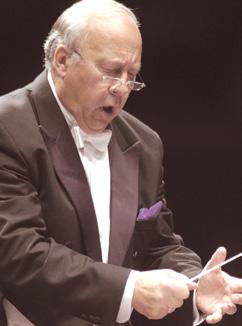
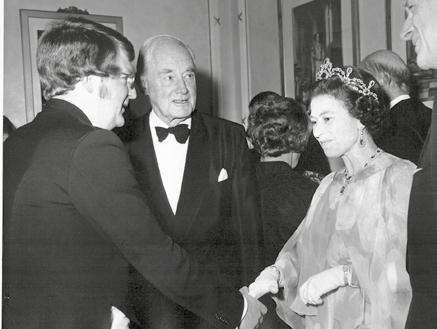
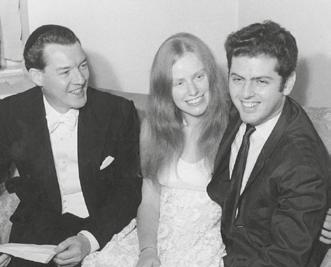
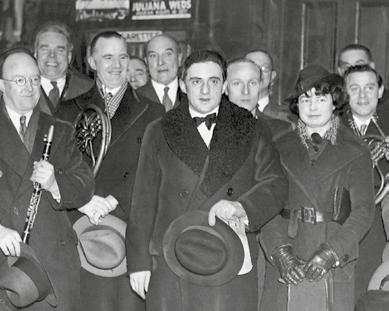

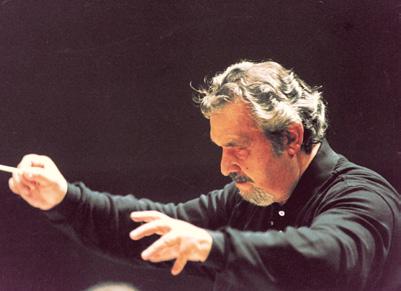

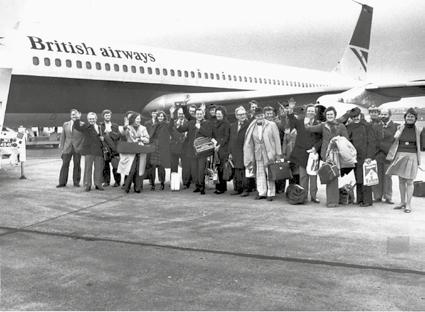
If you would like to discuss this further, please contact Torran McEwan, Individual Giving and Partnerships Officer, in the strictest confidence, at torran.mcewan@rsno.org.uk
To the many among you who have pledged to leave a gift already – thank you.
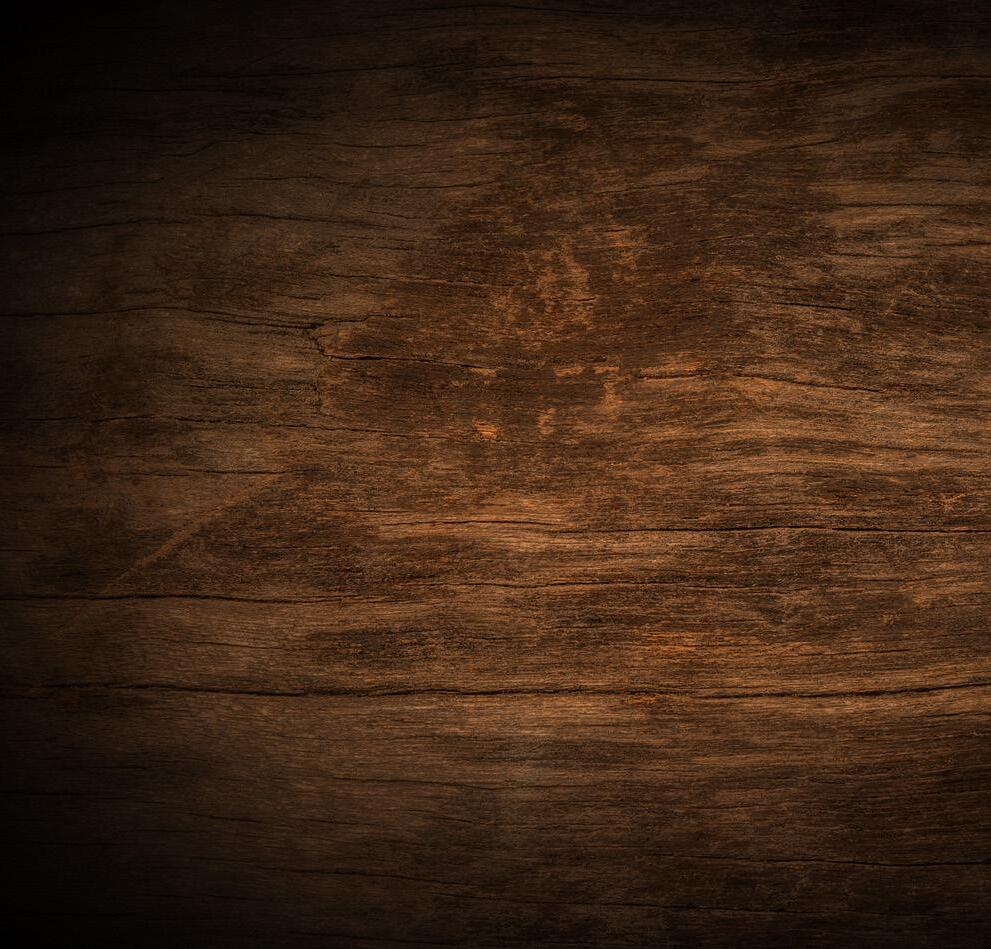
 All-Star Gala: Benedetti, Kanneh-Mason & Grosvenor
All-Star Gala: Benedetti, Kanneh-Mason & Grosvenor
Leave a gift to the RSNO and ensure future generations can create their own Musical Memories of the Royal Scottish National Orchestra.
Charitable trusts and foundations have a distinguished history of supporting the RSNO, both on and off stage. From one-off donations for specific projects to multi-year funding for our flagship outreach initiatives, including the National Schools Concert Programme and Young Creatives, every grant in support of our work is truly appreciated. We are grateful to the following trusts and foundations for their generosity:
Aberdeen Endowments Trust
Alexander Moncur Trust
Alma & Leslie Wolfson Charitable Trust
Balgay Children’s Society
Boris Karloff Charitable Foundation
Brownlie Charitable Trust
Castansa Trust
CMS Charitable Trust
Cookie Matheson Charitable Trust
Cruach Trust
Cruden Foundation
David and June Gordon Memorial Trust
D’Oyly Carte Charitable Trust

Dunclay Charitable Trust
Educational Institute of Scotland
Edgar E Lawley Foundation
Ettrick Charitable Trust
Fenton Arts Trust
Forteviot Charitable Trust
Gaelic Language Promotion Trust
Gannochy Trust
Gordon Fraser Charitable Trust
Harbinson Charitable Trust
Hugh Fraser Foundation
Idlewild Trust
James Wood Bequest Fund
Jean & Roger Miller’s Charitable Trust
Jennie S Gordon Memorial Foundation
Jimmie Cairncross Charitable Trust
John Mather Charitable Trust
John Scott Trust Fund
Jones Family Charitable Trust
JTH Charitable Trust
Leach Family Charitable Trust
Leng Charitable Trust
Mary Janet King Fund
McGlashan Charitable Trust
MEB Charitable Trust
Meikle Foundation
Mickel Fund
Murdoch Forrest Charitable Trust
Nancie Massey Charitable Trust
Noël Coward Foundation
Northwood Charitable Trust
P F Charitable Trust
Pump House Trust
Q Charitable Trust
Ronald Miller Foundation
R J Larg Family Trust
Russell Trust
Scops Arts Trust
Scott Davidson Charitable Trust
Solti Foundation
Souter Charitable Trust
Stevenston Charitable Trust
Sylvia Aitken Charitable Trust
Tay Charitable Trust
Thomson Charitable Trust
Thriplow Charitable Trust
Tillyloss Trust
Vaughan Williams Foundation
WA Cargill Fund

Walter Craig Charitable Trust
Walter Scott Giving Group
Walton Foundation
Wavendon Foundation
William Syson Foundation
William S Phillips Fund
W M Mann Foundation
W M Sword Charitable Trust
Zich Trust
We are also grateful to a number of trusts that wish to stay anonymous.
If you would like more information about our work and how you can make a difference, please contact Naomi Stewart, Head of Trusts and Projects, at naomi.stewart@rsno.org.uk
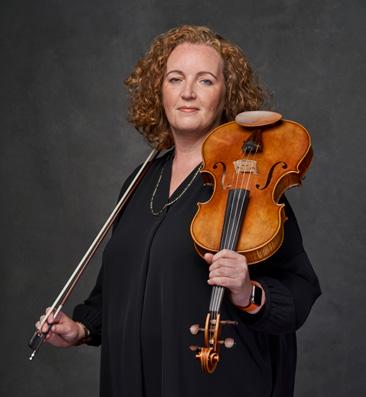

The Circle is a vital part of the RSNO family. Our community of music-lovers inspire and support us. Supporting us by joining the Circle will help us to bring music to so many people, from our Learning and Engagement programmes to our brand-new digital performances. As part of our community and family, we will keep in touch with our exclusive magazine Inner Circle, our Circle member webpage and invitations to special events throughout the year.
To find out more about joining the Circle please visit rsno.org.uk/circle or get in touch with Torran McEwan, Individual Giving and Partnerships Officer, at torran.mcewan@rsno.org.uk
To all our existing Circle members, thank you. Thank you for your unwavering support that allows us to continue sharing the joy of music.
Virtuoso
Ms Catherine Y Alexander
Mrs A M Bennett
Mr Alan and Mrs Carolyn Bonnyman
Dame Susan and Mr John Bruce
Mrs Stina Bruce-Jones
Stephen and Morny Carter
Francesca and Eoghan Contini Mackie
Sir Sandy and Lady Crombie
Ms Margaret Duffy and Dr Peter Williamson
Gavin and Kate Gemmell
Dr M I and Mrs C R Gordon
Scott and Frieda Grier
Judith and David Halkerston
Iain MacNeil and Kat Heathcote
Miss A McGrory
Miss M Michie
Mr James Miller CBE
Nicholas and Alison Muntz
Meta Ramsay
Mr George Ritchie
Mr and Mrs W Semple
Mr Ian Taft
Claire and Mark Urquhart
Raymond and Brenda Williamson
Mr Hedley G Wright
Symphony
Mr W Berry
Mr John Brownlie
Miss L Buist
Dr K Chapman and Ms S Adam
Mr I Gow
Mr J D Home
Mrs A Lamont
Professor J and Mrs S Mavor
Mrs A McQueen
Mr Miller
Mrs A Morrison
Mr and Mrs David Robinson
Mr D Rogerson
Mrs Ann M Stephen
Mr Alistair M and Mrs Mandy
Struthers
Mr and Mrs M Whelan
Concerto
Mr A Alstead
Miss D Blackie
Mr L Borwick
Neil and Karin Bowman
Dr C M Bronte-Stewart
Dr F L Brown
Mr and Mrs Burnside
Mr A Campbell
Dr J Coleiro
Mr and Mrs B H Cross
Christine and Jo Danbolt
Mr P Davidson
Mr J Diamond
Mr S Dunn
Mr C Ffoulkes
Mr W G Geddes
Mr and Mrs M Gilbert
Lord and Lady Hamilton
Mrs S Hawthorn
Dr and Mrs P Heywood
Ms H Kay
Mr and Mrs W Kean
Mrs M King
Christine Lessels
Mr R M Love
Mr D MacPherson
Mr and Mrs Marwick
Mr S Marwick
Mr and Mrs G McAllister
Dr A H McKee
Mr Rod McLoughlin
Mrs B Morinaud
Dr and Mrs D Mowle
Mr I Percival
Ms A and Miss I Reeve
Mrs E Robertson
Miss L E Robertson
Dr and Mrs G K Simpson
Mr and Mrs A Stewart
Mrs M Stirling
Mr G Stronach
Mr I Szymanski
Mr J B and Mrs M B Watson
Mr and Mrs Zuckert
Sonata
Mr K Allen
Mrs P Anderson
Dr A D Beattie
Mrs H Benzie
Lord and Lady Borthwick
Rev P Boylan
Rev P Boylan
John Bradshaw and Shiona Mackie
Mr and Mrs Bryan
Mrs C Campbell
Miss S M Carlyon
Lady Coulsfield
Adam and Lesley Cumming
Dr J K and Mrs E E Davidson
Mr and Mrs K B Dietz
Mrs C Donald
Mr John Duffy
Mr and Mrs M Dunbar
Mr R M Duncan
Brigadier and Mrs C C Dunphie
Mrs E Egan
Mr R B Erskine
Dr E Evans
Mr D Fraser
Ms J Gardner
Mr W G Geddes
Mr D Gibson
Mrs M Gibson
Mr and Mrs A Gilchrist
Mrs M Gillan
Mrs JK Gowans
Dr J and Mrs H Graham
Professor and Mrs A R Grieve
Lord and Lady Hamilton
Dr P J Harper
Dr N Harrison
Mr and Mrs R J Hart
Ms V Harvey
P Hayes
Dr and Mrs P Heywood
Bobby and Rhona Hogg
Mr R Horne
Mr and Mrs F Howell
Mrs A Hunter
Professor R N Ibbett

Mr A Kilpatrick
Professor and Mrs E W Laing
Christine Lessels
Dr D A Lunt
Mrs Lesley P Lyon
Lady Lucinda L Mackay
Dr A K and Mrs J C Martin
Mr and Mrs J Martin
Ms S McArthur
Mr G McCormack
Jean McCutcheon
Mrs M McDonald
Ms M McDougall
Mr M McGarvie
Dr Colin McHardy
Mr G McKeown
Ms H L McLaren
Mrs E McLean
Mr D McNaughton
Mr and Mrs B Mellon
Mr I Mills
Kenneth M. Murray
Mr B and Mrs C Nelson
Mr and Mrs K O’Hare
Mr and Mrs K Osborne
Dr G Osbourne
Mr R Parry
Misses J and M Penman
Mr J W Pottinger
Miss J A Raiker
Mr M Rattray
Ms F Reith
Mrs D A Riley
Dr and Mrs D Robb
Mrs A Robertson
Mr I Robertson
Ms A Robson
Mrs E K Ross
David Scott
Mrs J Shanks
Mr J A Shipley
Dr M J and Mrs J A Shirreffs
Mr E Simmons and Mrs R Nicolson
Mrs E Smith
Mr M Smith
Dr and Mrs B Stack
Mrs Lorna Statham
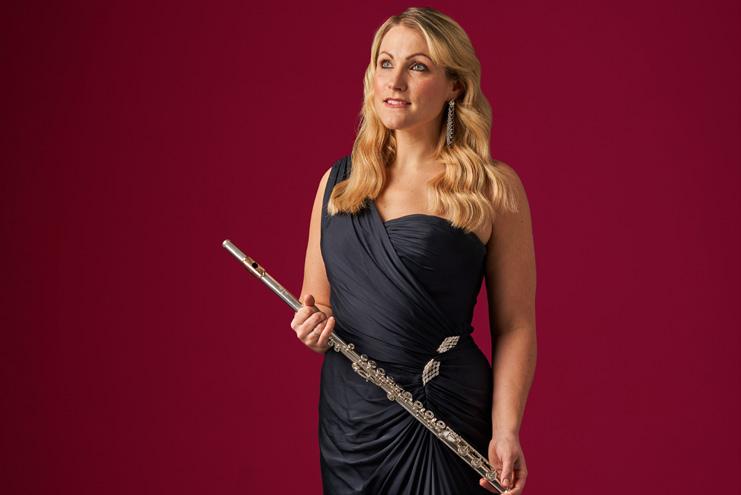
Mrs T Stevenson
Mrs R F Stewart
Rev N and Mr R Stewart
Mr and Mrs B Tait
Dr and Mrs T Thomson
Dr Morag Ward
Mr W Watters
Mr G West
Miss M Whitelaw
Dr and Mrs D T Williams
Mr R Young
Mr C and Mrs L Yule
Thank you to all our members of the Circle, including those who wish to remain anonymous. Every one of you makes a real difference.




If you would like more information about sponsorships, corporate partnerships or fundraising events with the RSNO, please contact Jenny McNeely, Head of Individual Giving and Partnerships, at jenny.mcneely@rsno.org.uk
Her Late Majesty The Queen
RSNO BOARD OF DIRECTORS
Elected Directors
Dame Susan Bruce DBE
CHAIR
John Heasley
HONORARY TREASURER
Kat Heathcote
Linda Holden
Neil McLennan
Costa Pilavachi
CHIEF EXECUTIVE
Alistair Mackie
Phoebe Connolly
EXECUTIVE ASSISTANT
Nicola Shephard
EXECUTIVE ASSISTANT (MATERNITY LEAVE)
CONCERTS
Dr Ingrid Bols
PLANNING OFFICER
Ashley Holland
STAGE MANAGER
Emma Hunter
DEPUTY ORCHESTRA MANAGER
Ewen McKay
HEAD OF ORCHESTRA MANAGEMENT
Jim O’Brien
DRIVER AND ORCHESTRA TECHNICIAN
Richard Payne
LIBRARIAN
Tammo Schuelke
HEAD OF PLANNING
Craig Swindells
HEAD OF PRODUCTIONS
Matthias Van Der Swaagh
CONCERTS ADMINISTRATOR
Xander van Vliet
LIBRARY ASSISTANT
Christine Walker
CHORUS MANAGER
LEARNING AND ENGAGEMENT
Andy Stevenson
DIRECTOR OF ENGAGEMENT
Samantha Campbell
HEAD OF ENGAGEMENT (MATERNITY LEAVE)
David Robinson
Gurjit Singh Lalli
Jane Wood
Player Directors
Helen Brew
David Hubbard
Dávur Juul Magnussen
Sophie Lang
Paul Philbert
Lorna Rough
Nominated Director
Cllr Edward Thornley
THE CITY OF EDINBURGH COUNCIL
Chrissie Johnson
PROJECT MANAGER
Rosie Kenneally
LEAD PROJECT MANAGER
Rachel O’Connor
CREATIVE ASSISTANT
Rachel Pyke
PROJECT MANAGER
EXTERNAL RELATIONS
Dr Jane Donald
DIRECTOR OF EXTERNAL RELATIONS
Lisa Ballantyne
PARTNERSHIPS OFFICER
Ian Brooke PROGRAMMES EDITOR
Rosie Clark
EXTERNAL RELATIONS ADMINISTRATOR
Jessica Cowley
MARKETING MANAGER
Carol Fleming
HEAD OF MARKETING
Constance Fraser
COMMUNICATIONS AND MARKETING OFFICER
Torran McEwan
INDIVIDUAL GIVING AND PARTNERSHIPS
OFFICER
Jenny McNeely
HEAD OF INDIVIDUAL GIVING AND PARTNERSHIPS
Mirienne McMillan
SALES OFFICER
Graham Ramage
GRAPHICS AND NEW MEDIA DESIGNER
Kirsten Reid
TRUSTS AND PROJECTS COORDINATOR
Dr Naomi Stewart
HEAD OF TRUSTS AND PROJECTS
Sam Stone
INFORMATION SERVICES MANAGER
Youth Advisory Board
Nina Doig
Erin Findlay
Beth Peat
Annie Unieng
Company Secretary
Gordon Murray
RSNO COUNCIL
Baroness Ramsay of Cartvale
CHAIR
Ms Ruth Wishart
FINANCE AND CORPORATE SERVICES
Angela Moreland
CHIEF OPERATING OFFICER
Abby Dennison
FINANCE ADMINISTRATOR
Alice Gibson
FINANCE ADMINISTRATOR
Ted Howie
FACILITIES COORDINATOR
Lorimer Macandrew
VIDEO PRODUCER
Sam McErlean
ASSISTANT SOUND ENGINEER
Irene McPhail
ACCOUNTS AND PAYROLL ASSISTANT
Calum Mitchell
ASSISTANT VIDEO PRODUCER
Hedd Morfett-Jones
DIGITAL MANAGER
Susan Rennie
FINANCE MANAGER
Jade Wilson
FINANCE ASSISTANT
Royal Scottish National Orchestra 19 Killermont Street
Glasgow G2 3NX
T: +44 (0)141 226 3868
W: rsno.org.uk
Scottish Company No. 27809
Scottish Charity No. SC010702

